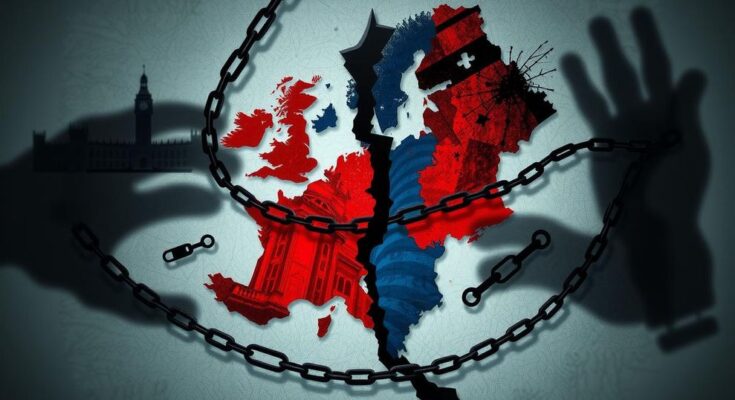The Rapid Support Forces’ recent move to create a “parallel government” in Sudan has ignited widespread alarm over the growing divisions within the country. Amid a two-year conflict with the Sudanese Armed Forces, the initiative, dismissed by the government, has drawn sharp criticism from international figures, including UN Secretary-General Antonio Guterres and Saudi Arabia, highlighting the necessity for maintaining Sudan’s sovereignty and unity.
The recent actions of the Rapid Support Forces (RSF) attempting to establish a “parallel government” in Sudan have raised serious domestic and international concerns regarding deeper divisions within the already conflict-ridden nation. On February 22, the RSF, in conjunction with allied political and armed groups, signed a “political charter” in Kenya, which was later rejected by the Sudanese government as “stillborn.”
Sudan has been embroiled in a violent conflict between the Sudanese Armed Forces (SAF) and the RSF for nearly two years, which has resulted in over 29,600 fatalities and displaced more than 15 million individuals, according to crisis monitoring groups. This latest development reflects the ongoing failures of political resolution as both sides have entrenched themselves in opposing positions, as noted by political analyst Abdul-Raziq Ziyada.
The signing of the charter signals an escalation in conflict and a potential shift in the power dynamic within the country. Khalid Dirar, a professor at al-Rasid Center for Strategic Studies, remarked on the evident signs of division in Sudan, highlighting that the RSF’s initiative should not be underestimated. Ahmed Ismail, a military expert, emphasized that the RSF’s establishment of a “parallel government” could significantly alter the balance of power in the region.
Political analyst Abdul-Rahman Awad cautioned against underestimating the risks linked to this “parallel government,” indicating it could result in serious political, security, and economic repercussions amid Sudan’s dire situation. Conversely, Abdul-Khaliq Mahjoub predicted substantial challenges in forming such a government, particularly if the SAF continues to gain ground on the battlefield.
Globally, United Nations Secretary-General Antonio Guterres expressed serious concern over the further fragmentation of Sudan resulting from the signing of the charter, stating that preserving Sudan’s unity and sovereignty is crucial for long-term stability.
Saudi Arabia also condemned the formation of a “parallel government,” asserting that such actions undermine Sudan’s official institutions and do not reflect the will of the Sudanese people. Furthermore, the charter’s signing provoked diplomatic tensions between Sudan and Kenya, as Sudan’s foreign ministry summoned its ambassador in protest against Kenya hosting meetings with rebel groups.
In response to Kenya’s involvement, Sudan’s government has threatened economic repercussions, including restrictions on Kenyan imports, signaling discontent about Kenya’s stance regarding the RSF’s activities. These developments underscore the escalating tensions surrounding the conflict in Sudan and the complexities of establishing governance amidst ongoing warfare.
In summary, the RSF’s move to establish a “parallel government” in Sudan amidst ongoing conflict has intensified concerns over national division and instability. The international community, including the UN and Saudi Arabia, has expressed alarm over these developments. The potential consequences of a dual governance structure raise significant political, economic, and security challenges for Sudan, highlighting the urgent need for a concerted solution to restore peace and unity.
Original Source: english.news.cn




